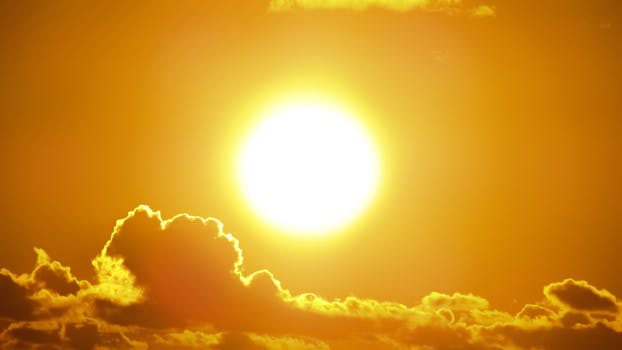Contact Us (720) 964-1335 or (901) 675-6125

Introduction
If you’ve been told you’re low in vitamin D, you’re not alone. Nearly half of adults in the U.S. don’t get enough, and the rates are even higher among women over 40. Often called the “sunshine vitamin,” vitamin D isn’t just about bone health. It also plays a role in immunity, metabolism, muscle strength, and even mood.
For women navigating perimenopause, menopause, or weight loss with or without GLP-1 medications, vitamin D becomes especially important. At Ample Health & Wellness, I remind clients that vitamin D is one of those quiet nutrients that can make a big difference in how you feel day-to-day and how well your body responds to holistic weight loss.
Why Vitamin D Deficiency Is Common After 40
Several factors make low vitamin D more common in midlife:
- Less sun exposure: We spend more time indoors for work and daily life.
- Aging skin: The skin’s ability to synthesize vitamin D decreases with age.
- Hormonal changes: Menopause and perimenopause can alter how the body uses vitamin D.
- Weight gain: Vitamin D is fat-soluble, and higher body fat can “trap” it, making less available to the body.
- Medications: Some drugs, including certain weight loss and cholesterol medications, can impact vitamin D absorption.
Why Vitamin D Matters for Women Over 40
Vitamin D touches nearly every system in the body. Its main roles include:
- Bone strength: Works with calcium to maintain strong, healthy bones and reduce fracture risk.
- Immune health: Plays a critical role in reducing infections and supporting resilience.
- Metabolism & weight: Supports muscle function, hormone regulation, and energy balance.
- Mood: Low vitamin D has been linked to depression and seasonal affective disorder.
For women trying to lose weight, vitamin D isn’t a magic bullet; but deficiency can stall progress and leave you feeling fatigued, achy, and unmotivated.
Best Food Sources of Vitamin D
While sunlight is the most natural source, food and supplementation are often necessary. Vitamin D-rich foods include:
- Fatty fish (salmon, mackerel, sardines)
- Fortified dairy or plant milks
- Egg yolks
- Mushrooms exposed to UV light
- Fortified cereals
Unfortunately, it’s tough to get enough from food alone (which is why many women need a supplement).
Types of Vitamin D Supplements
If your provider recommends supplementation, here’s what you should know:
- Vitamin D2 (ergocalciferol): Plant-based, but not as effective at raising blood levels.
- Vitamin D3 (cholecalciferol): Derived from animal sources or lichen, more effective at raising and maintaining levels.
- Liquid drops or capsules: Both are effective; choose whichever works best for you.
- With K2: Some supplements pair D3 with vitamin K2 to help direct calcium into bones instead of soft tissues.
How Much Do You Need?
The recommended daily allowance (RDA) for women over 40 is around 600–800 IU, but many experts suggest higher doses (1,000–2,000 IU daily) for those deficient. The exact dose depends on your blood levels, which is why testing matters. Because too much vitamin D can cause toxicity, though it’s rare. Symptoms of too much vitamin D can include nausea, weakness, and kidney problems …another reason to work with your healthcare provider.
Lifestyle Tips to Boost Vitamin D Naturally
- Spend 10–20 minutes in the sun a few times a week (without sunscreen on arms/legs, if safe for your skin type).
- Pair vitamin D foods or supplements with healthy fats (like avocado or olive oil) for better absorption.
- Move your body daily — strong muscles and bones work better together.
- Manage stress — high cortisol can interfere with vitamin D and bone metabolism.
The FRESH Approach to Vitamin D and Whole Health
At Ample Health & Wellness, I use my FRESH Framework to help women optimize nutrients like vitamin D in a sustainable way:
- F – Food Freedom: Create balanced meals with foods naturally rich in vitamin D and calcium.
- R – Rewire the Mindset: Stop thinking of supplements as “cheating” (they’re tools, not crutches).
- E – Elevate Habits: Build consistent sun time, meal prep, and supplementation into your daily rhythm.
- S – Simplify Environment: Keep supplements in visible places (like by your coffee maker) so you remember them.
- H – Honor Whole Health: Remember vitamin D supports your mood, bones, weight, and energy …not just one thing.
How Ample Health & Wellness Can Help
Vitamin D is just one piece of the puzzle. At Ample Health & Wellness, I help women over 40 connect the dots between nutrition, weight loss, and whole-body wellness.
✔️ Personalized nutrition strategies to support bone, immune, and metabolic health.
✔️ Coaching that combines supplements, stress management, and sustainable habits.
✔️ Programs like the FRESH Start Holistic Weight Loss Program that integrate every part of health into one plan.
Final Thoughts
Vitamin D deficiency is common, but it’s not inevitable. With the right foods, sunlight, supplementation, and holistic coaching, you can boost your levels and feel more energized, resilient, and motivated. At Ample, I help women understand how nutrients like vitamin D fit into the bigger picture of weight loss and whole health. Because when your body has what it needs, every part of your wellness journey becomes easier.
✨ Learn more in my book The Weight Is Over or inside the FRESH Start Holistic Weight Loss Program at AmpleHealthAndWellness.com.

📚 References
- Palacios, C., & Gonzalez, L. (2014). Is vitamin D deficiency a major global public health problem? The Journal of Steroid Biochemistry and Molecular Biology, 144(Pt A), 138–145. https://doi.org/10.1016/j.jsbmb.2013.11.003
- Berridge, M. J. (2017). Vitamin D deficiency and diabetes. Biochemical Journal, 474(8), 1321–1332. https://doi.org/10.1042/BCJ20170042
- Mithal, A., Wahl, D. A., Bonjour, J. P., et al. (2020). Global vitamin D status and determinants of hypovitaminosis D. Osteoporosis International, 31(7), 1193–1205. https://doi.org/10.1007/s00198-020-05314-7
